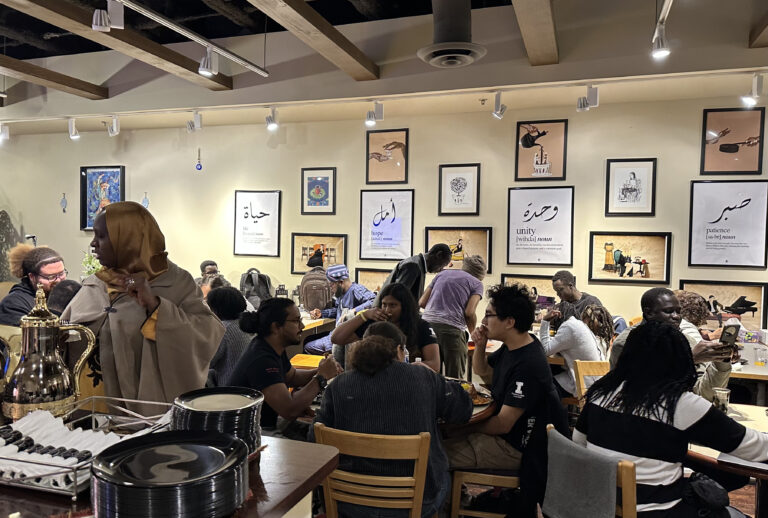The category of Middle Eastern North African, or MENA, was added to the U.S. Census earlier this year. It’s a change the MENA community had been trying to achieve since 1997 when the last major changes to race and ethnic categories in the Census were made.
The MENA race category was proposed during the Obama presidency and was ignored by the Trump administration in 2016. Then, in March, the Biden administration announced adding MENA as a race category to the next Census.
But with a potential Trump presidency on the horizon, some are concerned that the census might become a tool to fuel xenophobia and target the MENA community.
“A lot of people are afraid that by checking this box, it gives the government more information about who we are and where we live, outside of just guessing based on our names,” said Awad Awad, a Palestinian American and director of Salaam MENA Cultural Center at the University of Illinois at Urbana-Champaign.
The addition of MENA as a race category in the census is important, Awad said, because in the past, MENA people had to label themselves as “Other,” or as white, while not getting the same privileges.
“We fought hard as a community to be considered white because that was the only way you could become a citizen, and own property during that time,” Awad said. “It became much more clear that most of us who are still considered to be white, especially after 9/11, don’t have the full privileges of being white.”
Illinois was the first state to introduce this change in 2023, even before the federal ruling. Itedal Shalabi, co-founder and executive director at Arab American Family Services, was one of the people who pushed adding the MENA category to the Illinois Census.
“We didn’t sit back and say, ‘All right, let’s wait till 2030.’ We said, ‘Why not create our own MENA in the state of Illinois?’” she said. “What we did is actually institutionalize and give identity on a state level to start counting them [MENA people] in a community every year.”
She emphasized that the lack of census data on the community led to many deaths, especially during and after the COVID era.
“We lost a lot of lives that could have been prevented if we had resources come into the community to give them the shot, if we had the accurate information being given to the community in the language they understood well,” Shalabi said. “Our community was suffering in silence.”
However, some see the census change as a two-edged sword. Many are concerned that if Trump wins, census data may turn into a threat, Awad said.
His concerns stem from a history of discrimination against the MENA community in the U.S., which was exacerbated after 9/11.
“Under the Trump presidency, it was touted that he was going to push for a Muslim ban,” Awad said. “For a community that has been historically surveillanced, this is a double-edged sword of ‘Are they going to target us next?’ ‘Are we going to be the next Japanese during the internment?’”
Awad’s fears stem from the 1942 case where the Census Bureau cooperated with U.S. military forces, aiding in the incarceration of more than 100,000 people of Japanese descent.
But Awad holds onto hope that adding the MENA category will pressure the government to better support MENA communities across the nation.
“I hope this turns into more allocation of funds, more resources for us that we really need, specific to our communities,” Awad said.
David Yves Albouy, professor of economics at the University of Illinois, said that changes to funding allocations are unlikely.
“I don’t think we’re going to see any massive — if we could see any — large effects of knowing racial characteristics on the allocation of funds,” Albouy said.
But this change to U.S. Census data could lead to an increase in political representation of the MENA community, he said.
“Most of the race stuff that is in the census is probably going to come in most useful when it comes to congressional districts,” Albouy said. “There are certain protections to make sure that minorities get a certain amount of political representation in Congress and that their power isn’t sort of taken away through gerrymandering techniques.”
Shalabi said this representation is exactly what they have been fighting for as a community.
“Money is one thing, but I think just the power of having our voices heard,” she said, noting that with the data can be used to send a message to lawmakers and elected officials: “This is how many people you have represented, and these votes will count.”

